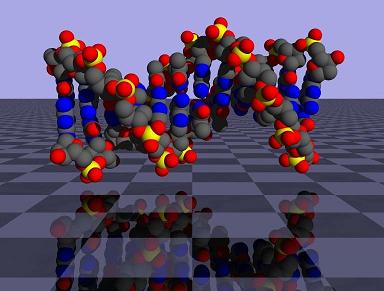This is the vision of futurist Ray Kurzweil and nutritionist Terry Grossman, M.D., in their popular book, Fantastic Voyage: Live Long Enough to Live Forever. In the coming decades, the authors claim, “We will be able to reengineer the way we provide nutrients to our trillions of cells.”
Current method of extracting nutrients from food is not working very well. Nearly two thirds of Americans are overweight and it has become extremely difficult for most people to achieve proper nutrition as we trek through our 21st century maze of confusing health options.

However, by mid-2030s, nutritional needs tailored exclusively to meet each person’s requirements will be more clearly understood. The exact required nutrients could then be provided inexpensively by a nano-replicator and delivered directly into each cell by nanobots; thus eliminating the need to eat food.
Americans love to improve their bodies. We take drugs and vitamins to enhance performance; replace joints, teeth, skin, arteries, and veins as needed. We dream of new hearts, livers, pancreas, and brains, expected from new biotech advances. Now we can add a revolutionary new digestive system to the mix.
To implement this futuristic technology, we would wear a special “nutrient belt” loaded with billions of nutrient-bearing nanobots, which would enter and leave the body through our skin.
However, this concept may not be accepted easily. Many will want to hang on to their food-eating pleasures, so scientists propose an innovative solution; create a special digestive tract to receive real food, but bar those nutrients from entering the blood stream. Nanobots would convert this food into molecules and route it back to the “nutrient belt,” which would be replaced periodically with a fresh one.
Will humanity ever shed its dependency on food? Though this concept sounds extreme, it boasts many advantages. It would slash food budgets by producing inexpensive nutrients with nano-replicators; end concerns over starving populations; improve the ecosphere by reducing agricultural activities; and most important, every human being would live in a forever-healthy non-obese body. Comments welcome.
Source: ieet.org - Author: Dick Pelletier; he is a weekly columnist who writes about future science and technologies for numerous publications. He's also appeared on various TV shows, and he blogs at Positive Futurist.